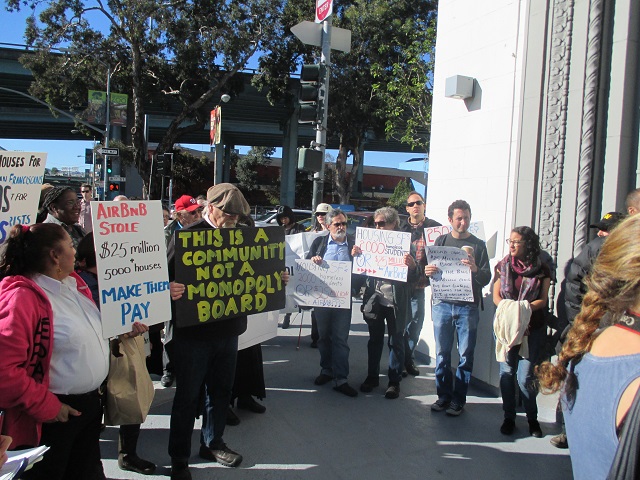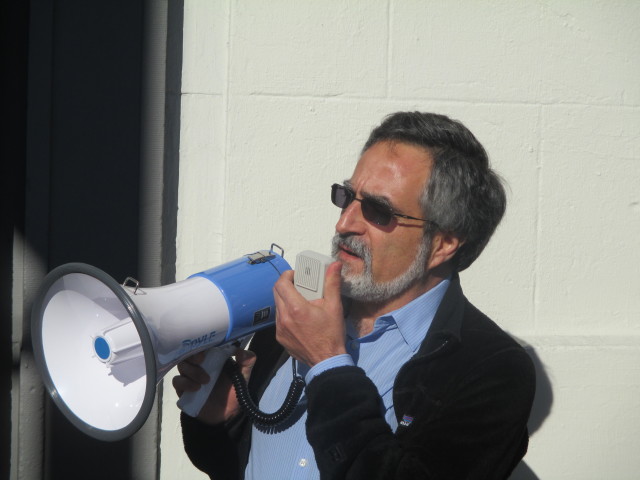Measure that would mandate Airbnb list only registered hosts is ready to start gathering signatures — and could be a defining issue in D3 election

By Tim Redmond
APRIL 30, 2015 – Sponsors of an initiative to more tightly restrict short-term rentals are filing their measure this week, setting up a major battle on the November ballot.
The impacts could go beyond Airbnb – it’s likely this will be a big issue in the District 3 supervisorial race and will offer a stark contrast between the two major contenders.
The measure comes as Mayor Ed Lee is trying to head off major reforms with his own modest legislation, and several supervisors are going further.
The initiative would take several major steps to ensure that short-term rentals aren’t abused and are not taking valuable rental housing stock off the market.

It would require Airbnb and other hosting platforms to check and make sure that all the rentals they list in San Francisco are in fact legal and registered, and would fine the companies for listing unregistered properties. That’s a big deal since registration for the current system has been going very, very slowly and there are thousands of places available on Airbnb today that aren’t registered with the city.
Airbnb is bitterly opposed to that kind of regulation.
It would limit all short-term rentals to 75 days a year.
The initiative would also provide notification to neighbors when a unit is registered for short-term rentals – and give neighbors the opportunity to take action against an illegal STR if the city fails to do so.
In essence, it would address the problem that City Planning Department staff have repeatedly expressed: The current rules are utterly unenforceable, since there’s no way a limited staff (Planning has only 12 enforcement officers) can properly police more than 5,000 listings unless the host platforms give the city the data it needs.
The tech-based companies that are making large sums of money off short-term rentals ought to be able to comply pretty easily: All they need is to make sure that anyone who posts a rental has a city registration number, and since they are already collecting that data, they can easily turn it over to the city.
Airbnb will fight the initiative, and probably put up a ton of money against it. But there’s a remarkable coalition behind it, including tenant groups like the Housing Rights Committee, landlord groups like the SF Apartment Association, affordable housing and neighborhood groups, and the hotel workers union, Local 2.
So there will be resources on both sides.
“It’s pretty clear from watching the legislative process last year and the recent Planning Commission hearings that the only way the city will get the tools to enforce regulations on short-term rentals is if the voters approve them,” Dale Carlson, who is one of the sponsors of the measure, told me.
“The Planning staff agree that they can’t enforce the existing laws, but they get no support from the mayor or even their own commission.”
Ron Conway, who is one of the most powerful political players in the city, is a big investor in Airbnb, and has the ear of the mayor. Conway and his pals just raised $25,000 for Sup. Julie Christensen, who has to face the voters this fall. Aaron Peskin, her opponent in D3, was part of the coalition that worked to draft the Airbnb initiative, and tonight he told me he was “of course” supporting it – “unless the Board adopts enforceable legislation to make the initiative unnecessary.”
So the incumbent’s ties to Big Tech money and to Airbnb, and Peskin’s support for tighter regulations, will be among the issues that define that critical November race.
(I have emailed Christensen for comment, but I haven’t heard back.)






